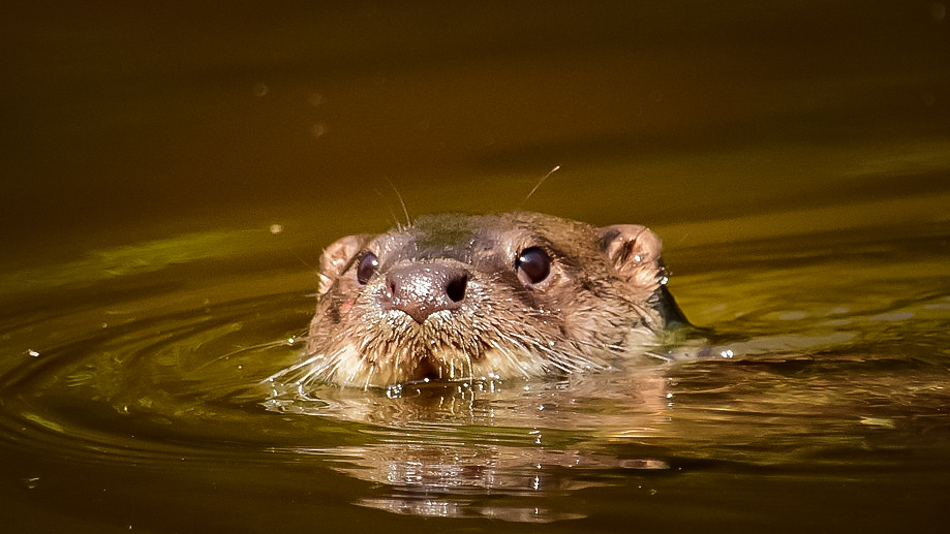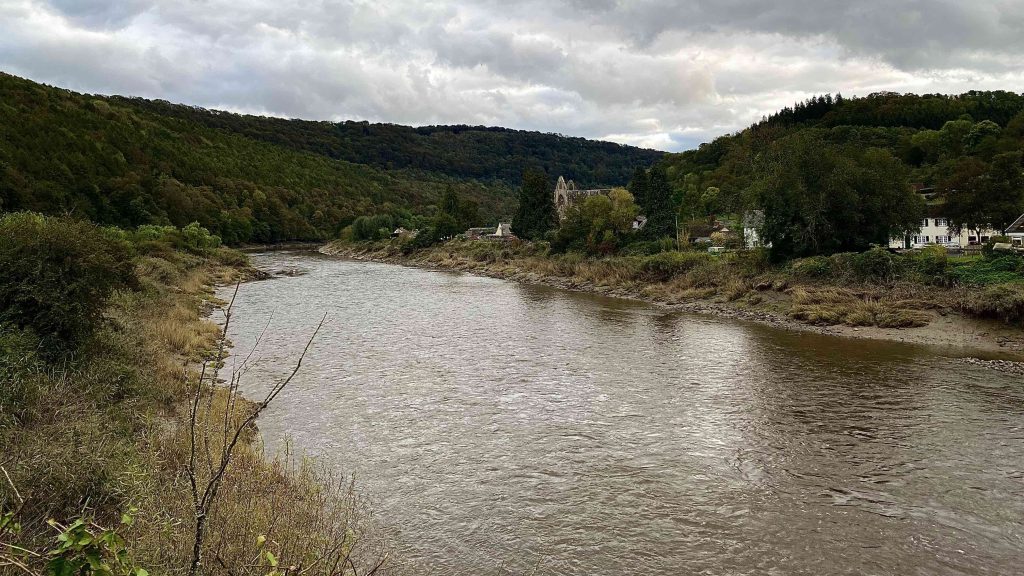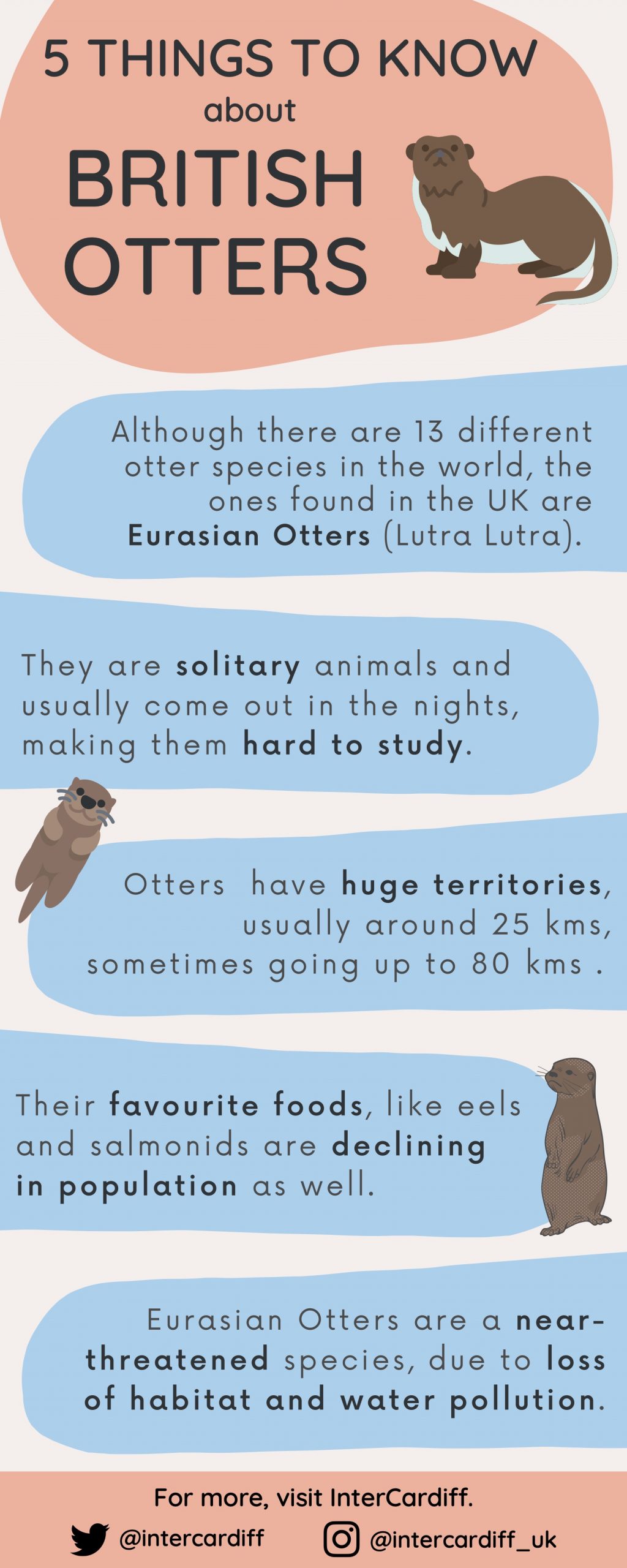With an increase in toxic chemicals and contaminants in rivers, otters — one of Wales’ most treasured animals could be facing imminent danger once again after 60 years.

Jeff Chard had been out for four hours, scanning the River Taff with his binoculars. It was a chilly January morning and he was on his first otter-sighting expedition. Feeling cold and dejected, he was about to turn back when he noticed a slight disturbance in the water. An otter — his first otter — crept out of the water and curled up on a mossy rock, as the only ray of sunshine fell on it through the trees.
Looking back, however, if there’s one thing that he wishes was different, it would be the persistent pollution in British rivers. “We had a saying from when I was younger, ‘You could go swimming in our rivers and you’d come out dirtier’,” says Jeff, who’s been an otter enthusiast since that fateful day in 2011. “This beautiful creature was surrounded by rubbish, when it should have been in a wonderful environment.”
The 64-year old, fondly called ‘The Otterman’ in the local wildlife fraternity has seen 93 different otters in the UK in the last eleven years, but the increasing river pollution has made him concerned about their population — especially after otter signs went down by 22 percent last year in Wales, according to a national survey.
This was the first time a decline had been reported in otter signs since the surveys began in 1977. Usually done every seven years, these surveys were established to monitor the revival of otters after they almost disappeared from the UK in 1950s and 60s, and have been the most reliant figures for otter population since then.
Dr Eleanor Kean, an independent ecologist who led the survey work, says that while pollutants like plastics and nets are unquestionably harmful for otters, their solitary and secretive nature makes it difficult to examine the effects of chemical pollution on them. “There are all sorts of different chemicals in the environment today, and we don’t really understand what their impact on wildlife health could be,” Dr Kean says.
Even though otters nearly disappeared from the UK 60 years ago, bans on chemicals like pesticides and herbicides had helped these mammals chart a rare success story in wildlife conservation. “We can see from the previous data that when limits on organic pollutants that caused the decline were put in, they started showing a comeback. So, this sort of thing is possible — legislative controls on chemicals work,” says Dr Kean.
A recent research from Cardiff University, however, has found that alarming amounts of toxic contaminants used in clothing and plastic industries could once again be the cause of otters’ declining numbers. Jo Wilson, research assistant at the Cardiff University Otter Project — an initiative to study otters — believes that this is going to affect all beings relying on water, including humans.
“You can have a beautiful river that looks incredibly clear and healthy,” Jo says. “Like the Wye, for example, looks beautiful, but it doesn’t have to be full of floating plastic and scum on the top of the water for it to be actually very polluted. And otters, like us, need unpolluted fresh water.”

The Otter Project has also undertaken the action of raising awareness about otters and their crucial role in the functioning of the ecosystem. “A lot of people find them adorable, but they are also the top predators,” says Jo. “So if we see a change in their population status, that leads us to question what else is happening lower down the food chain in fresh waters. Without them, an imbalance in other species’ population can occur.”
Thankfully, there seems to be growing interest and affinity towards otters. Dr Kean thinks that the shared love of the British public towards otters means that people who otherwise wouldn’t get involved in environmental programmes, are now starting to get concerned about issues like pollution and climate change. “They’re a species that can garner a lot of support in this respect. So, I hope this serves as a springboard for more work to be done,” Dr Kean says.
Jeff, who was the UK Wild Otter Trust Ambassador in 2020, echoes similar sentiments. He has presented over a hundred talks in local communities, helping them become more informed and mindful about the creatures, and the response has been fantastic. Although he had to put talks on hold due to Covid, Jeff believes that the pandemic has resulted in an unexpected outcome.
“While the lockdown somewhat diminished pollution levels, I think it also increased the number of people going out to their local rivers looking for otters. And they’re amazed to see such wildlife, often the first time for many of them!” says Jeff. “The more people we have appreciating otters, the better. I can only hope otter enthusiasts come together with conservation groups and wildlife trusts to find solutions for the situation.”

